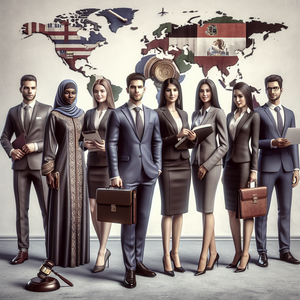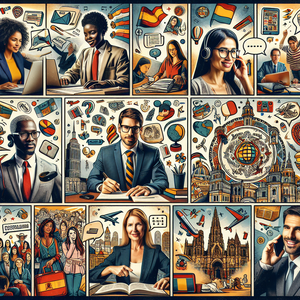Biden's Culinary Diplomacy: The Role of Food in International Relations

Culinary diplomacy is not a novel concept; throughout history, world leaders have utilized the power of food to forge connections and build trust. Biden’s approach to culinary diplomacy, however, is notably personal, deeply rooted in his own cultural experiences. Raised in a family where meals were more than just sustenance but a means of connection, Biden understands the ability of food to break down barriers and foster community. This understanding is evident in his diplomatic style, which seeks to connect with world leaders on a more intimate level. A prominent example of Biden's culinary diplomacy occurred during the G7 summit in Cornwall in June 2021. Leaders from around the world gathered for a lavish meal featuring local Cornish seafood, a tribute to the region's culinary heritage. This carefully curated feast served not only to showcase the local culture but also provided a relaxed atmosphere for Biden to engage in discussions on pressing global challenges with his counterparts. The shared experience of enjoying a meal together facilitated open dialogue, underscoring how culinary experiences can enhance diplomatic discussions.
Culinary Diplomacy in Action: The Biden Administration
Biden's culinary diplomacy is not limited to high-profile summits; it extends into his ongoing interactions with international leaders. He often emphasizes the significance of shared meals in these engagements. For instance, during a virtual meeting with Canadian Prime Minister Justin Trudeau, Biden prepared a traditional American beef stew while discussing the importance of cross-border collaboration. Such gestures illustrate the informal yet impactful nature of culinary diplomacy, where leaders can connect through the universal language of food. Furthermore, the Biden administration has made a concerted effort to incorporate local cuisines into official state dinners and events. By highlighting diverse American regional dishes, Biden not only celebrates the nation’s cultural richness but also fosters a sense of belonging and unity among attendees. This practice mirrors that of former President Barack Obama, who often showcased American culinary traditions as a means to promote cultural dialogue and understanding.
The Role of Food in Cultural Exchange
Beyond formal diplomatic gatherings, food plays a crucial role in cultural exchange and understanding. The Biden administration has prioritized international culinary collaborations, recognizing food as a bridge to connect with various cultures. Notably, the White House has hosted events like the annual "Taste of the World," where chefs from different countries share their culinary expertise. These initiatives promote cultural appreciation and create opportunities for dialogue on global issues. Engaging with diverse culinary traditions allows Biden to foster conversations around pressing topics such as climate change, food security, and health—issues that resonate across national borders. By doing so, he creates a platform for collaboration and understanding that extends beyond the dinner table.
President Joe Biden's culinary diplomacy exemplifies the profound impact of food in fostering international relations. By integrating shared meals and culinary traditions into his diplomatic endeavors, he cultivates an environment conducive to collaboration and mutual understanding. In a world often divided by political ideologies and cultural differences, the act of breaking bread together can pave the way for meaningful dialogue and connection. As Biden continues to navigate the complexities of global diplomacy, his love for cooking and food will undoubtedly remain a key ingredient in his approach to building relationships with world leaders. Ultimately, culinary diplomacy not only enriches the palate but also nourishes the spirit of collaboration and peace among nations, proving that sometimes, the simplest gestures can have the most significant impact.
Culinary Diplomat
Government agencies, embassies, international NGOs, cultural institutions
Core Responsibilities
Develop and implement culinary initiatives that promote cultural exchange between nations.
Collaborate with chefs and culinary experts to create menus that reflect diverse cultural heritages for diplomatic events.
Organize and facilitate culinary events that foster dialogue on global issues such as sustainability and food security.
Required Skills
Strong knowledge of global cuisines and cultural significance of food.
Excellent communication and interpersonal skills to engage with international leaders and stakeholders.
Experience in event planning and coordination, ideally within a diplomatic or governmental context.
International Relations Specialist with a Focus on Cultural Diplomacy
Think tanks, government agencies, international organizations, cultural institutions
Core Responsibilities
Analyze and report on the impact of cultural initiatives on international relations and diplomacy.
Develop strategies to leverage culinary experiences for diplomatic purposes.
Coordinate with various stakeholders to organize cultural exchange programs that include culinary components.
Required Skills
Background in international relations, cultural studies, or a related field.
Strong analytical skills to assess the effectiveness of cultural diplomacy initiatives.
Proficiency in multiple languages is a plus, enhancing engagement with diverse cultures.
Event Coordinator for International Culinary Events
Event management companies, embassies, cultural organizations, non-profits
Core Responsibilities
Plan and execute high-profile culinary events that highlight international cuisines and foster cross-cultural connections.
Work closely with chefs, caterers, and international dignitaries to ensure seamless event execution.
Manage logistics including venue selection, catering, and guest accommodations while adhering to cultural sensitivities.
Required Skills
Proven experience in event planning, particularly in a multicultural or diplomatic setting.
Strong organizational skills and attention to detail.
Ability to work under pressure and adapt to last-minute changes.
Food Policy Analyst
Government agencies, international organizations, research institutions, advocacy groups
Core Responsibilities
Research and analyze food policies that affect international trade and cultural exchange.
Provide recommendations on how culinary diplomacy can address global food security issues.
Collaborate with governmental and non-governmental organizations to influence food policy on a global scale.
Required Skills
Expertise in food systems, policy analysis, and international relations.
Strong communication skills to articulate findings to diverse audiences.
Ability to engage with various stakeholders, including policymakers and community organizations.
Culinary Program Director for Cultural Exchange
Cultural institutions, culinary schools, non-profit organizations, international exchange programs
Core Responsibilities
Oversee culinary programs that promote cultural exchange and understanding among diverse populations.
Develop educational initiatives and workshops focusing on the role of food in cultural diplomacy.
Partner with local and international chefs to create immersive culinary experiences that highlight cultural diversity.
Required Skills
Experience in program management, particularly in culinary or cultural sectors.
Passion for food and cultural heritage, with a strong understanding of global culinary traditions.
Strong leadership and team-building skills to manage diverse groups of participants and stakeholders.


